Our emotions often feel complex and overwhelming, but they can be broken down into simple formulas that reveal deeper secrets of life and The Universe.
By understanding the hidden components behind our emotions, we can shift our perspectives and create more meaningful lives.
Here are 20 emotional equations to unlock the greatest secrets of life.
20 Emotional Equations that Reveal Profound Secrets of Life
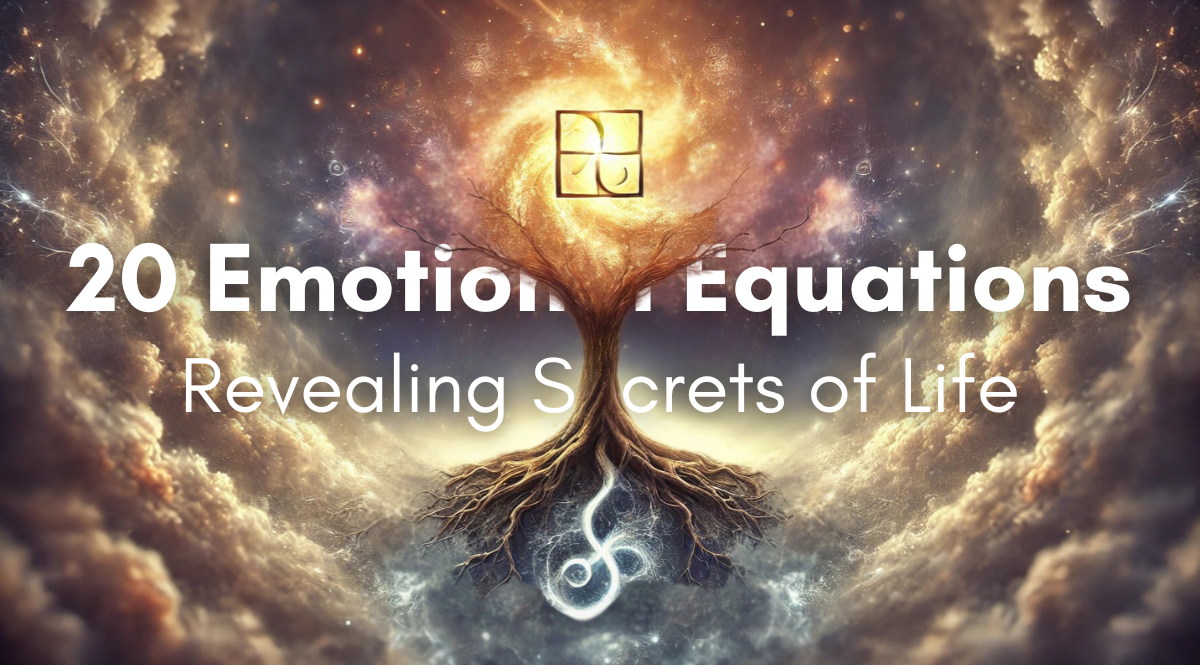
Equations for Dealing with Difficult Times:
1. Despair = Suffering – Meaning
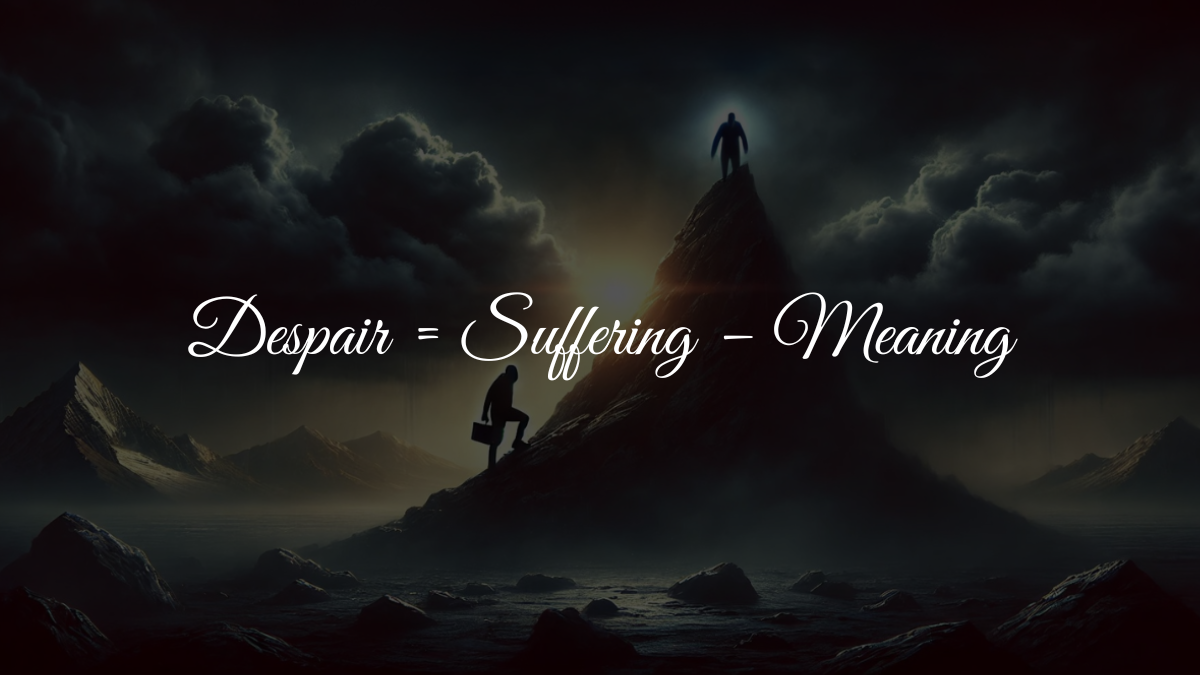
People focus on reducing suffering but often overlook the power of creating meaning.
Instead of fighting suffering, focus on reframing it with a meaningful narrative.
Ask, “How can this experience contribute to my growth or purpose?”
Think about people who go through insane amounts of suffering and, somehow, they do not fall into despair.
What’s the one thing that helps them go through the fires of suffering and come out on the other side?
Meaning.
They find meaning in their suffering.
And that makes all the difference.
Embracing challenges with a sense of purpose can transform despair into resilience and hope.
2. Disappointment = Expectations – Reality
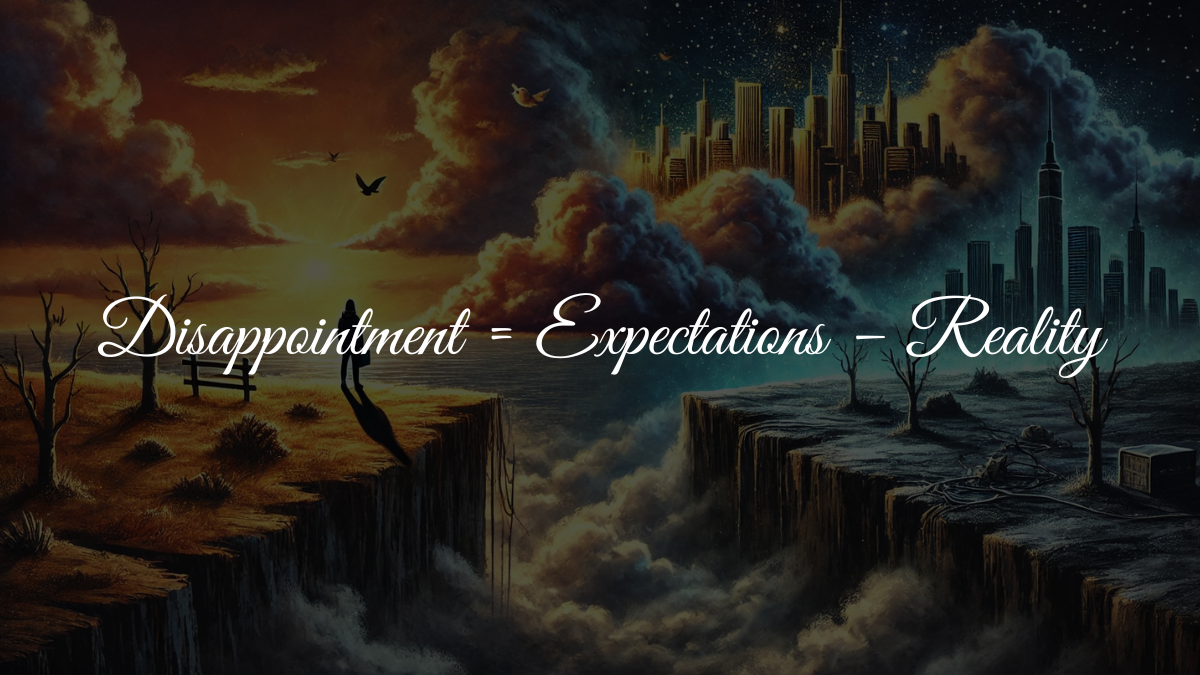
Many try to lower expectations but ignore how much reality can be improved.
You are more powerful and more in control of your reality than you think.
Work on shaping reality instead of just managing expectations.
Increase self efficacy and take actions that align with your goals.
See what works, get rid of what doesn’t, and keep taking action.
By consistently aligning actions with aspirations, you can bridge the gap between expectation and reality.
3. Regret = Disappointment + Responsibility
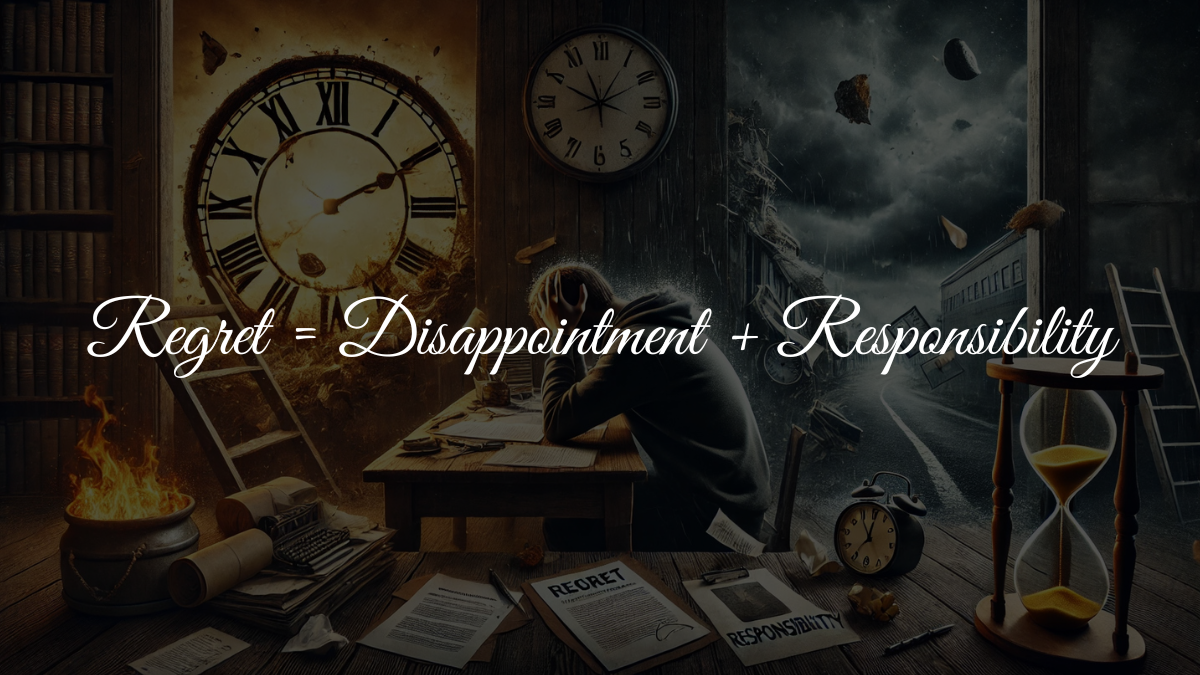
Disappointment is often linked to regret, but what people often miss to see is the role of responsibility.
If you lower how much responsibility you assign to yourself for something that happened (or something that didn’t happen), something you regret… the regret also decreases.
Some things in life that happen (or don’t happen), you have no control over.
You have no power over them.
Responsibility is directly linked to power.
We don’t want to feel powerless, so when things outside of our control (power) happen, we often fool ourselves that we could have changed something.
We assign to ourselves responsibility.
We want to feel that we are in control.
But the problem is, this responsibility that we assign to ourselves in the present is for the past, the control you feel is an illusion.
The past already happened.
You cannot change the past.
You have absolutely no control over the past.
So what you are left with is disappointment and regret.
If you want to assign responsibility to yourself, assign it in the present moment for the present moment.
The only real power and control you have is over the present moment.
And the more responsibility you give yourself to affect the present moment, the more power you can exert.
But no matter how much responsibility you give yourself in the present for the past, you cannot change the past.
Use regret as a teacher.
Instead of avoiding responsibility, embrace it to make better choices moving forward, but embrace it in the present moment.
Do not give it to your past self from the present moment, it makes no difference.
Learning from past experiences helps us cultivate wisdom and prevent future missteps.
But we learn so we can change the present and affect the future that we want to create.
4. Jealousy = Mistrust ÷ Self Esteem
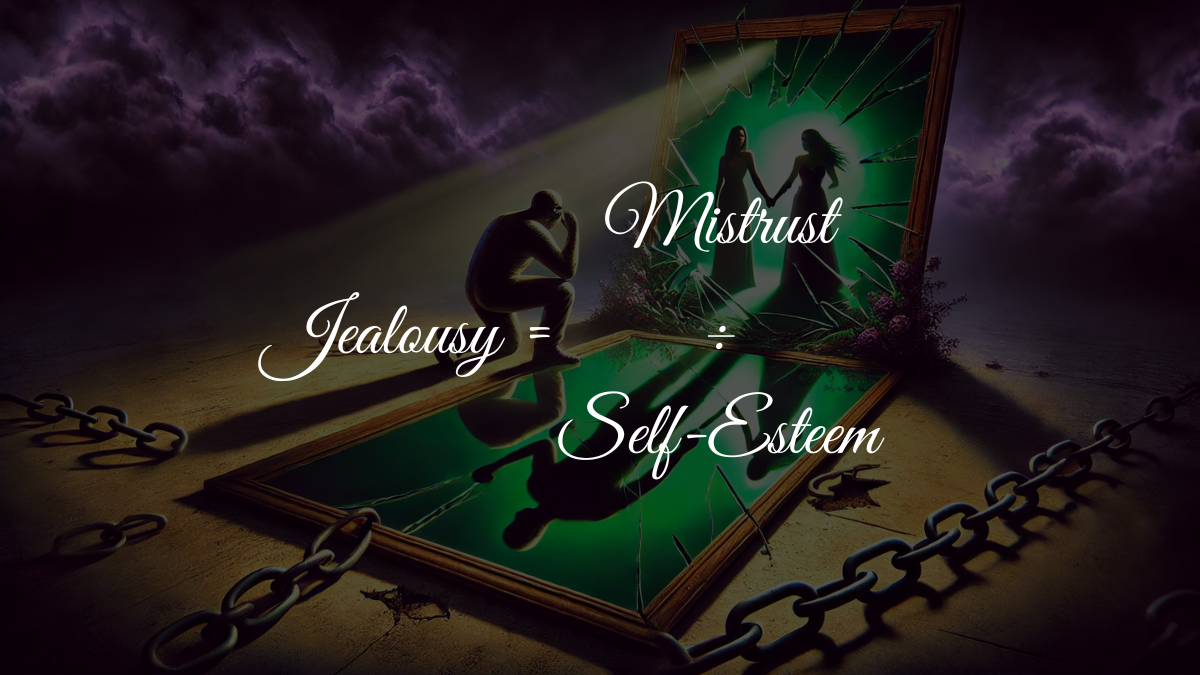
People target mistrust but ignore self esteem.
Instead of focusing only on trusting others, work on building a strong internal foundation of self worth.
Self love and confidence can minimize jealousy and foster healthier relationships.
The interesting thing here is that “Self Esteem” is the denominator.
What this implies is that if there is 0 self esteem there will be also 0 jealousy.
That seems a little counterintuitive, doesn’t it?
But it’s absolutely correct!
Think about, if someone has no self esteem what so ever, they will not even feel like they deserve the thing they should be jealous about.
So if someone is jealous, it means that there is at least a tiny amount of self esteem there.
This is key! If we know for a fact that if you are jealous you also have (at least a little bit) self esteem to be able to be jealous, you can capitalize and work on that self esteem to reduce the jealousy.
5. Envy = (Pride + Vanity) ÷ Kindness
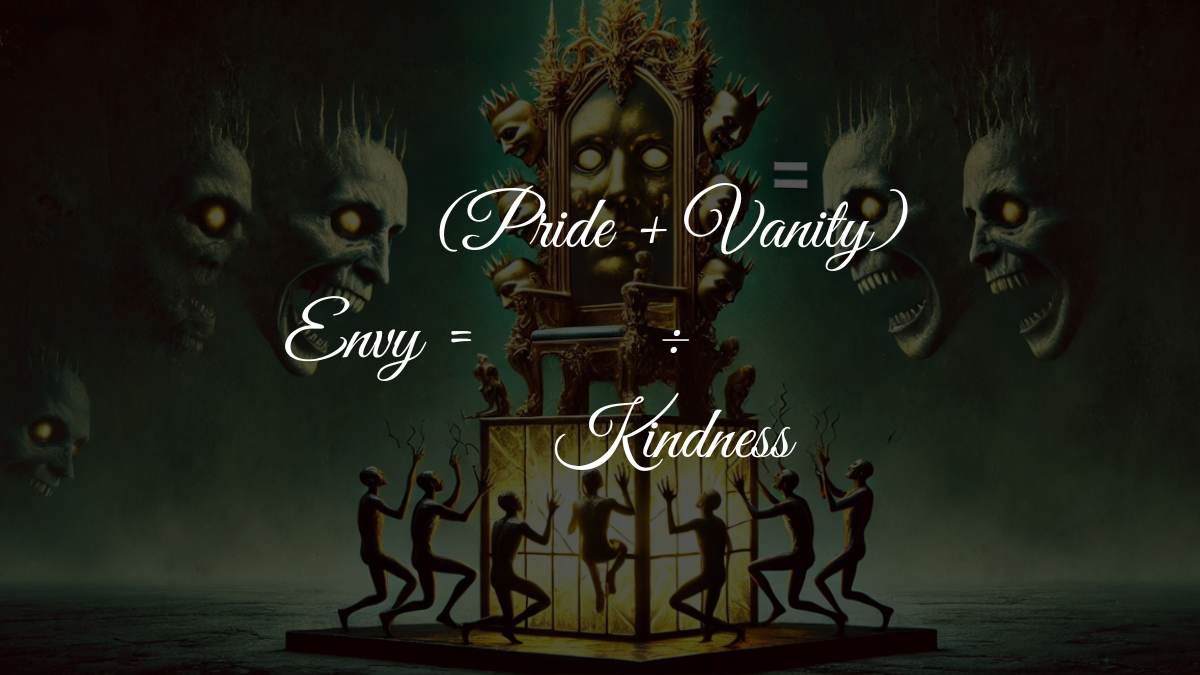
Kindness is often underutilized in dissolving envy.
Actively practice gratitude and kindness toward those you envy.
They have what you want and they show you that it is possible, if they have that you can also have that.
It flips the focus from comparison to appreciation.
Viewing others’ success as inspiration rather than competition can cultivate a more positive mindset.
However, the real secret lies in “Kindness” as the denominator.
What it implies is that: If there is no kindness, there will be no evny at all.
There needs to be at least a small amount of kindness in order to envy someone.
Strange right?
Well, think about it… Envy is a feeling that occurs when we compare ourselves to someone else and feel that they have something we lack, something that could potentially take away from our sense of worth.
Without kindness you don’t envy, you take.
There is nothing stopping you from taking what you want from others.
There is no sense of shared humanity or appreciation for others.
You may not even notice others’ success in a way that could provoke envy.
Do you envy ants who can find food anywhere, do not need to pay rent, and live on this planet for free?
No, because you do not relate to them.
In the absolute absence of kindness, you are not likely to recognize others as worthy of admiration or inspiration, there’s no emotional connection to feel envy toward them or feel threatened by their success.
But this also gives us another important piece of information.
If, when you envy someone there is always a small amount of kindness present, you can capitalize on that kindness to reduce the envy.
If there is a small spark of kindness, you can rekindle it into a bigger flame by focusing on that shared connection you have with them.
6. Anxiety = Uncertainty x Powerlessness
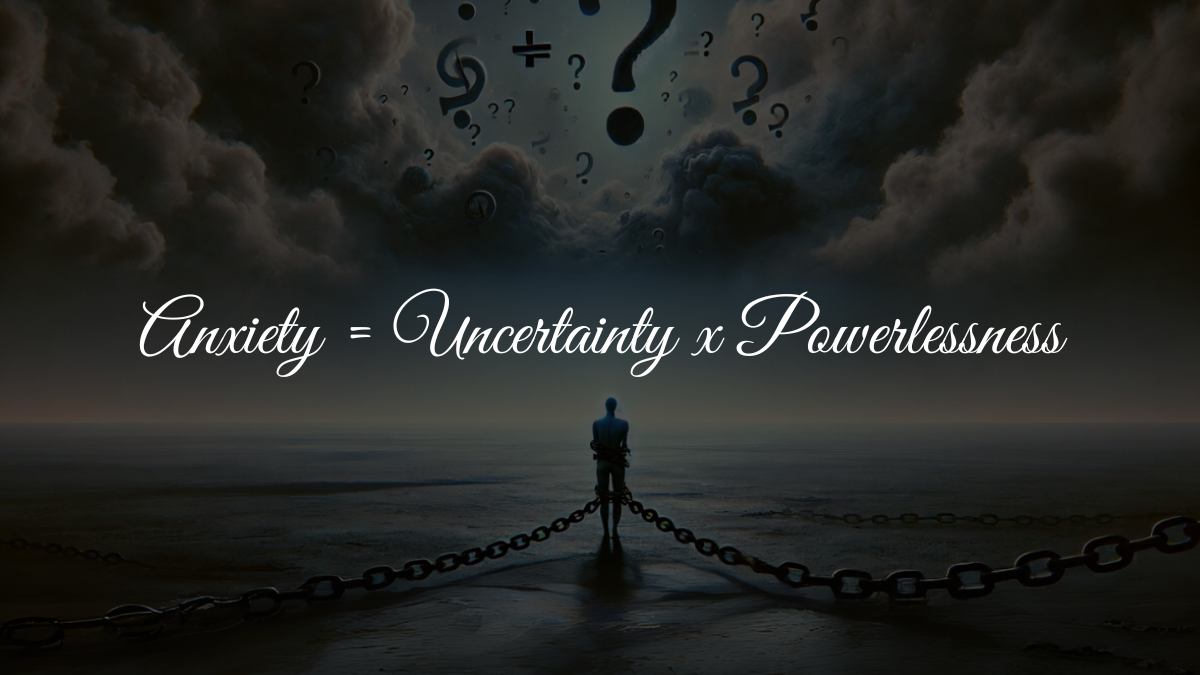
People try to reduce uncertainty but rarely tackle powerlessness.
Build small, actionable steps to feel more in control.
Learn as much as you can about what you feel uncertain about.
Embrace uncertainty by reframing it as an adventure or opportunity for growth.
Recognizing that growth often requires stepping into the unknown can empower us.
7. Healing = Reflection × (Processing + Acceptance) ÷ Resistance
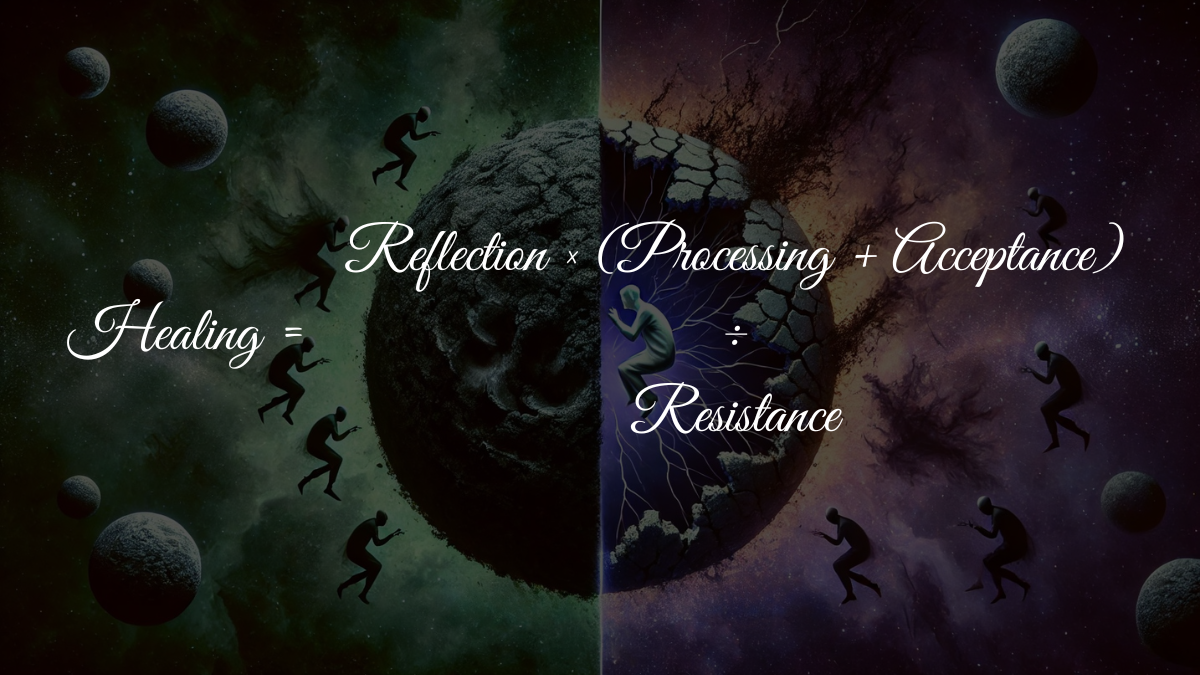
True healing requires deep reflection on past experiences, but it needs to be accompanied with processing of what happened, (processing the emotions, processing the pain) plus acceptance of what is.
The equation suggests that the more we resist facing our emotions and truths, the longer healing is delayed, but through reflection and acceptance, healing can happen.
Over acceptance without proper emotional processing and deep reflection might lead to suppression rather than true healing, where people convince themselves they’re healed without addressing the root cause.
However, the biggest secret here is in the denominator “Resistance”.
Sometimes, resistance can be beneficial, it can indicate areas that still need attention and work.
Removing resistance too quickly might prevent deeper self discovery.
Equations for Setting the Most Out of Work Life:
8. Calling = Pleasure ÷ Pain
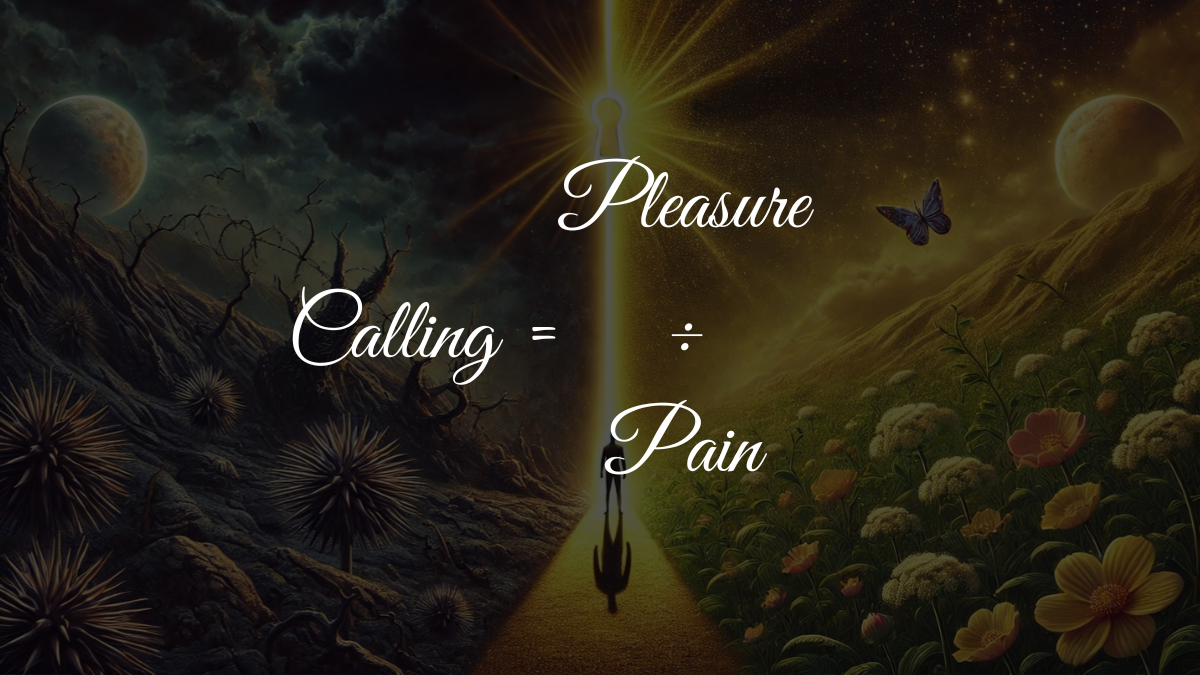
Pain is seen as negative, yet it can amplify meaning.
Instead of avoiding pain, find ways to transform it into a badge of honor or proof of commitment to your purpose.
The greatest fulfillment often comes from enduring hardships in pursuit of something meaningful.
Nobody found their calling by only following pleasure, there was always at least a little bit of pain somewhere in there.
Not too much, but enough to make the pleasure have depth.
9. Workaholism = What Are You Running From? ÷ What Are You Living For?
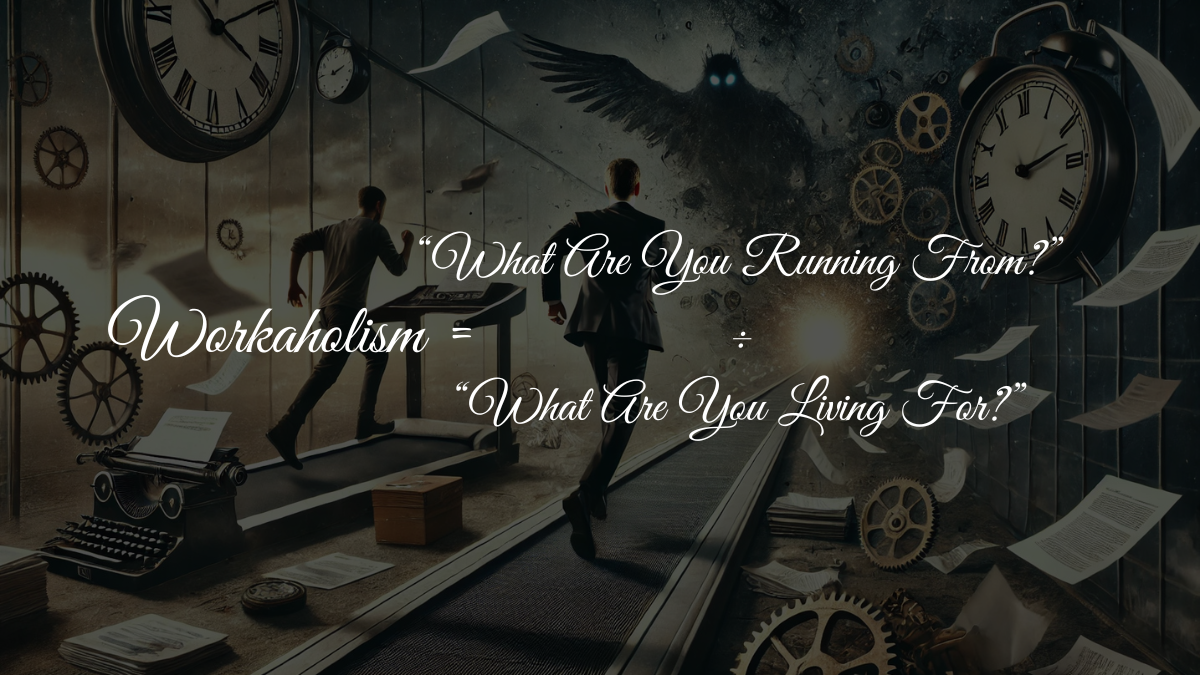
Many ignore the “running from” variable.
More often than not, workaholism comes as a result of mindlessly running away from something you do not want to face instead of proactively working on your purpose.
Dive into your fears and unresolved issues.
Address them to find balance and better align work with passion.
Understanding what drives workaholism can lead to a healthier relationship with work and life.
10. Flow = Skill × (Challenge ÷ Skill + 1)
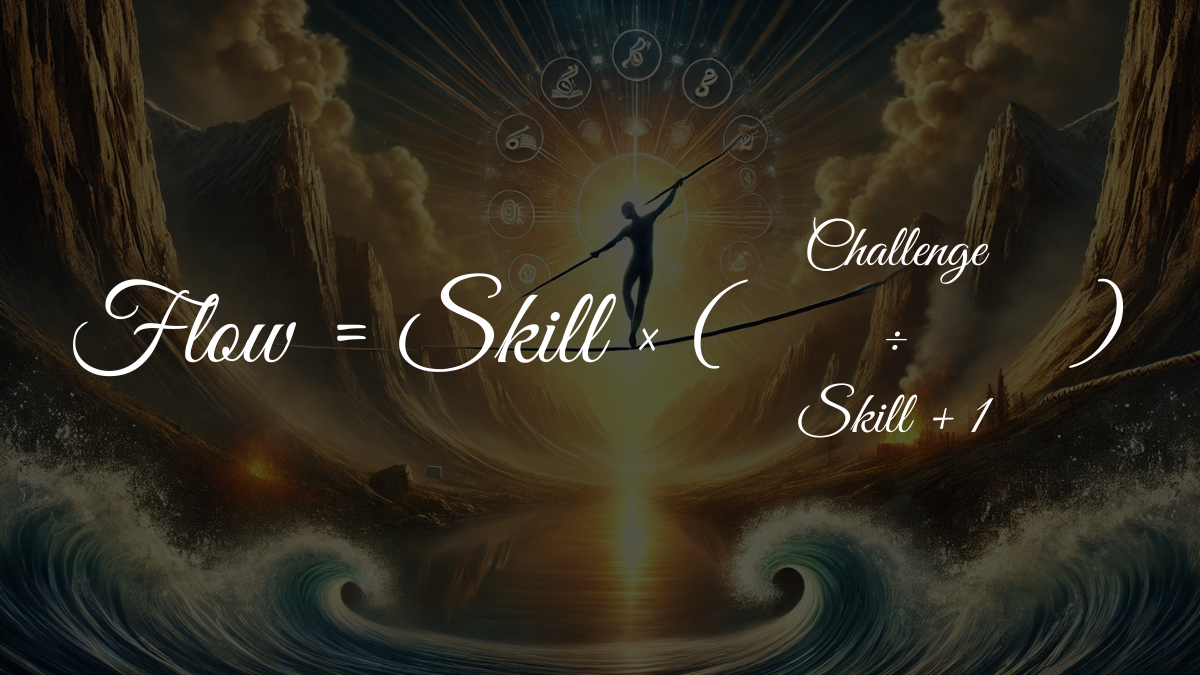
People think skill always has to match challenge, but they overlook learning opportunities.
Step slightly outside your comfort zone.
Increase challenge intentionally to grow your skill set.
Flow increases when you find the sweet spot where challenge is slightly greater than competence.
11. Curiosity = Wonder + Awe
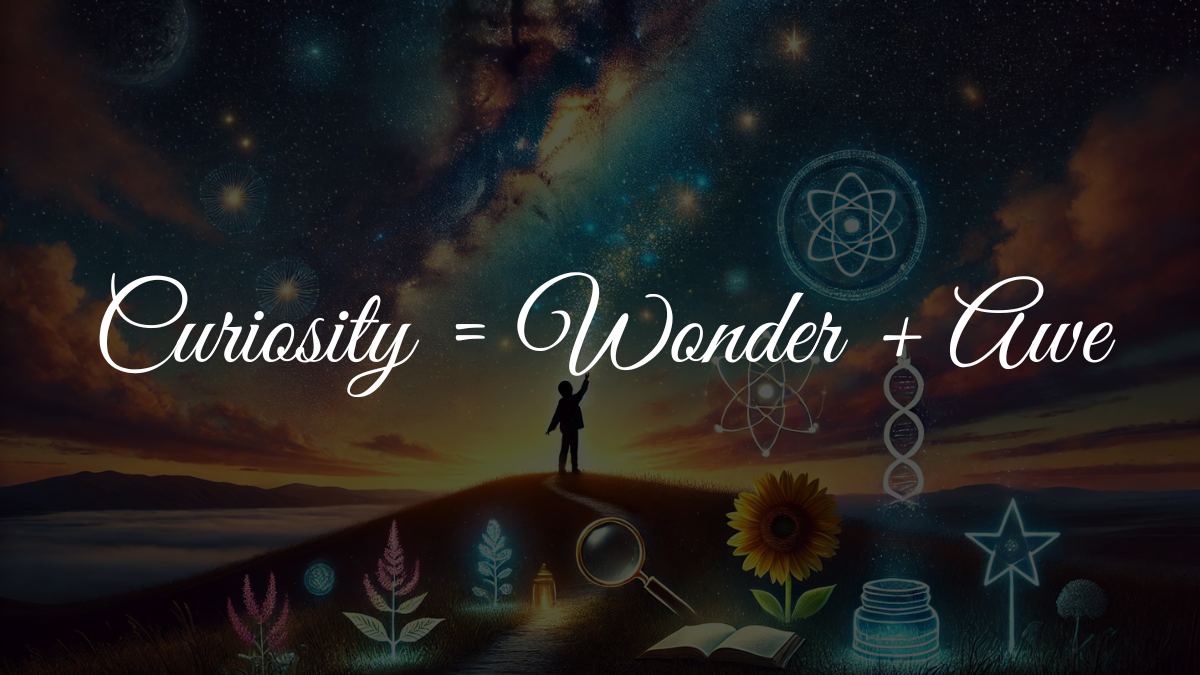
Do you recognize how things that once amazed you become ordinary the more you encounter them?
Awe can be elusive when life feels routine.
Deliberately seek new, inspiring experiences.
Travel, explore nature, or study something completely unfamiliar.
Embracing the unknown nurtures a lifelong sense of wonder and exploration.
12. Growth = (Curiosity × Courage²) ÷ Comfort
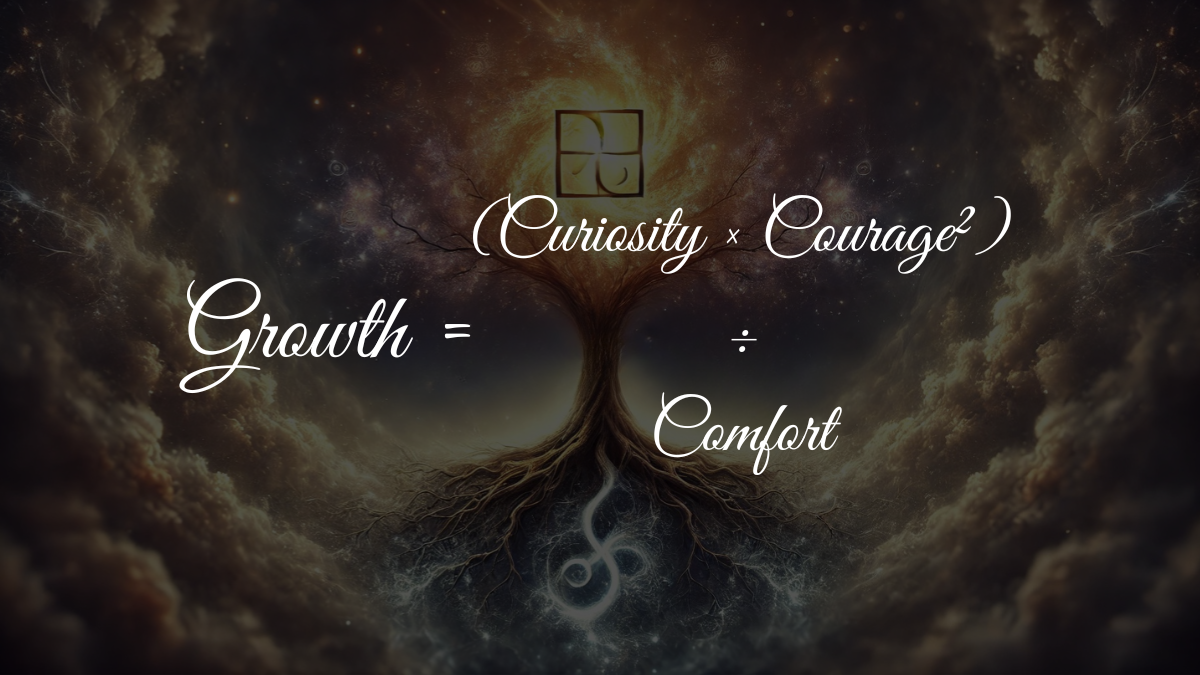
Growth happens when curiosity and courage outweigh the desire to stay in comfort.
The more we step outside our comfort zones, driven by our curiosity and bravery, the more we evolve and expand our potential.
By squaring Courage, this equation highlights the fact that taking action plays a more significant role in personal growth compared to just curiosity and learning.
It suggests that while curiosity sparks interest, it’s action that drives meaningful progress.
The secret lies in the “Comfort” as a denominator.
If comfort is 0, there will be no growth at all.
When we speak about growth we often focus on going out of the comfort zone but we forget that comfort has a role too.
The value of intentional rest and stability as crucial components of sustainable growth cannot be ignored.
Pushing too hard without balance and rest can lead to burnout.
Equations for Defining Who You Are:
13. Authenticity = Self Awareness x Courage
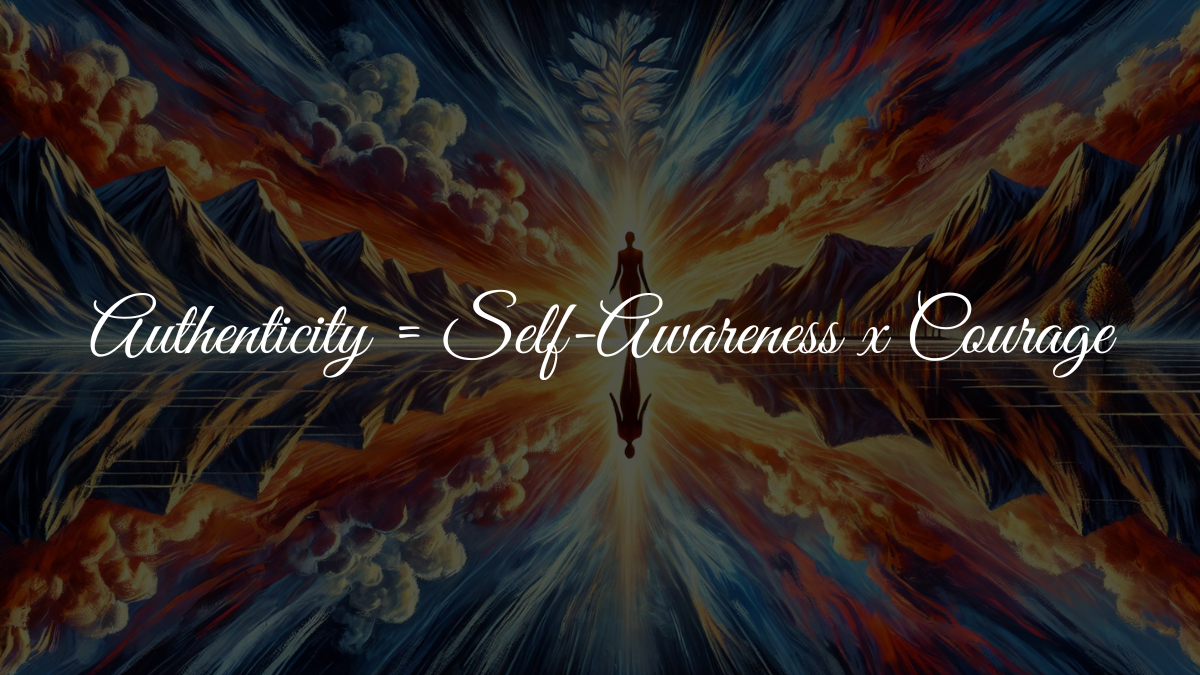
In order to be who you really are and stay authentic to yourself you need to be courageous enough to face judgment.
Courage is often underestimated as a skill that can be developed.
There are many ways to train your courage muscle, facing your fear is one of them.
The more you build your courage muscle, the easier it will be for you to maintain your authenticity and not shy away from your truth when social pressure is high.
A secret tip: Practice small acts of authenticity daily to build courage.
Pair self awareness with bold experiments in self expression.
Authentic living requires continuous self discovery and bravery.
14. Narcissism = (Self Esteem)² x Entitlement
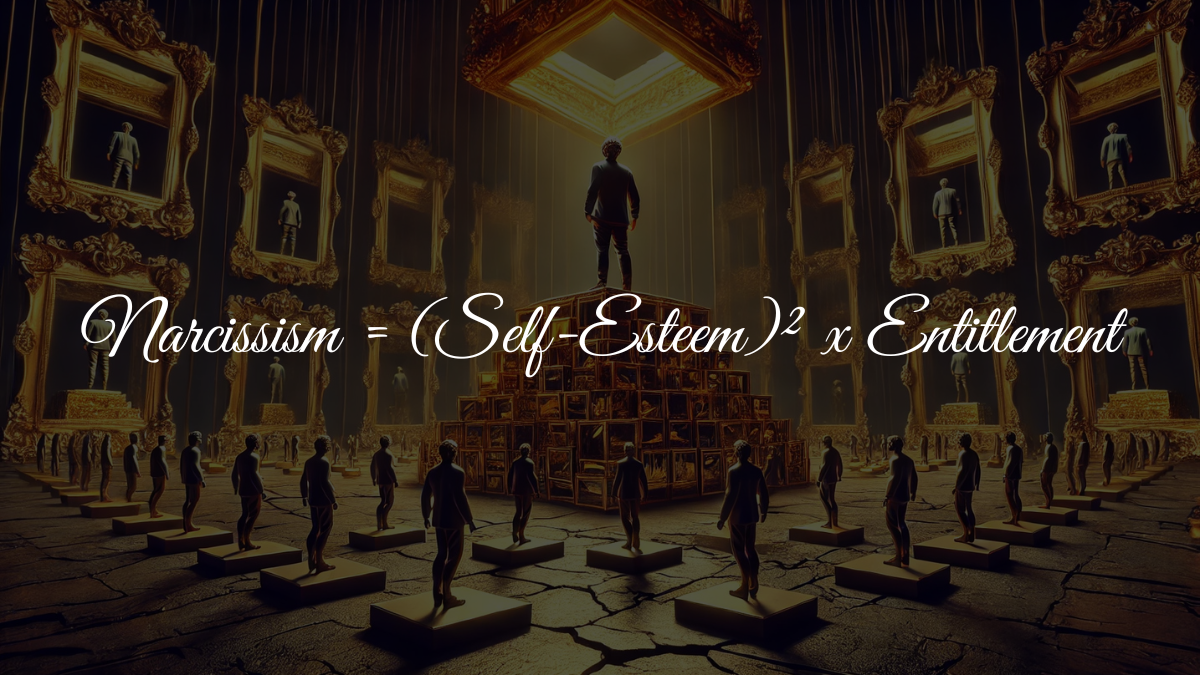
People only focus on reducing entitlement but ignore excess self esteem.
A healthy dose of self esteem is, well… healthy.
But when self esteem is squared, it doubles the effects of entitlement.
Use humility practices to balance self esteem, such as gratitude journaling or acts of service.
Cultivating humility ensures confidence remains grounded in reality.
15. Integrity = Authenticity x Reliability x Invisibility
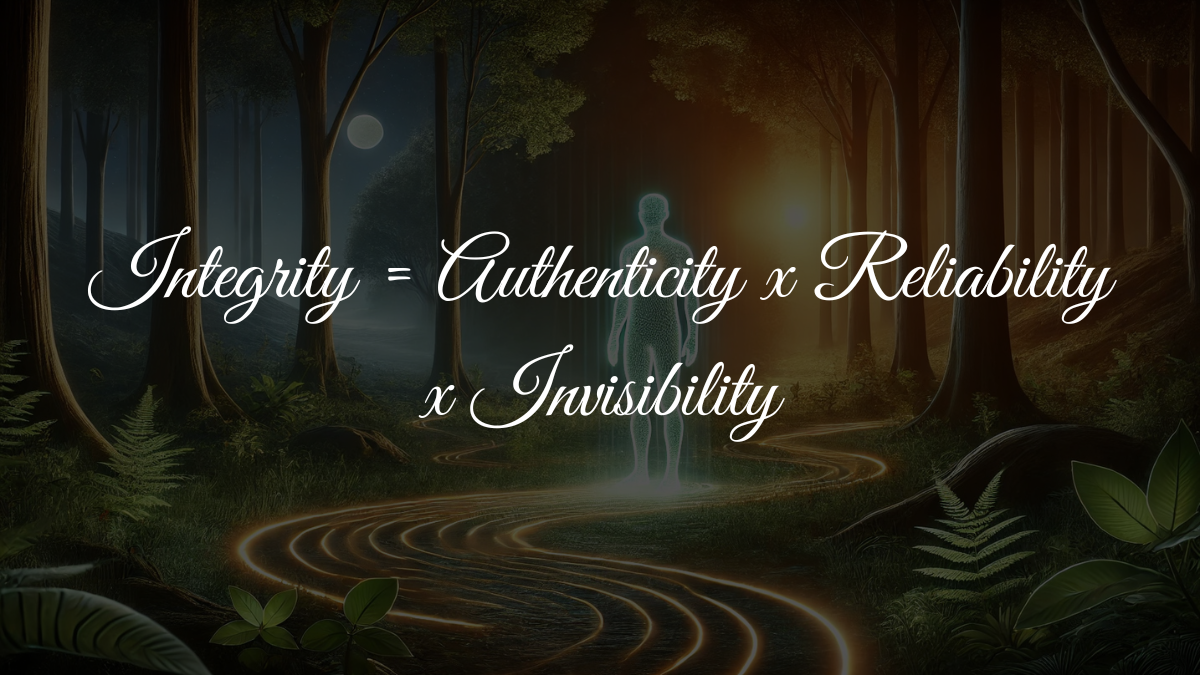
Invisibility is rarely considered a strength.
Take pride in “invisible” acts of character, such as doing the right thing even when no one is watching.
True integrity is built through consistent, unseen effort.
Equations for Living The Best Life Possible:
16. Happiness = Wanting What You Have ÷ Having What You Want
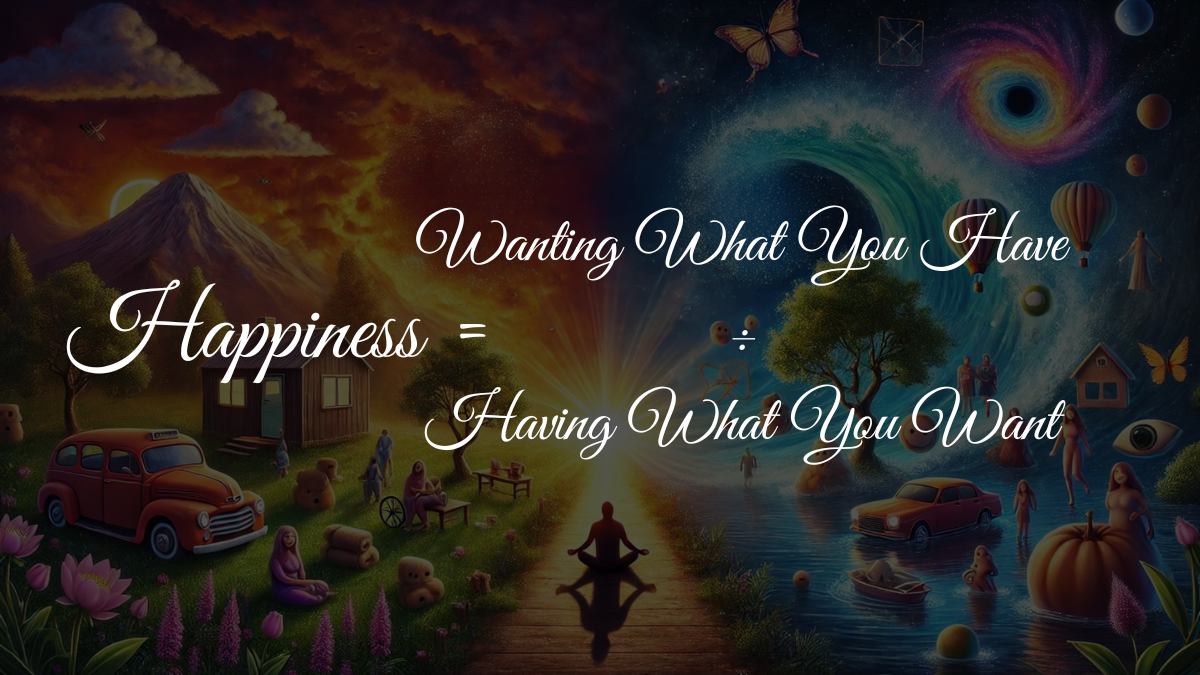
We focus too much on reaching our goals and getting what we want, but the secret to happiness is appreciating what you have.
Instead of chasing more try falling in love with what you already have.
Redefine “having” to include intangible blessings like relationships, health, and love.
Cultivating gratitude shifts the focus from materialism to fulfillment.
17. Joy = Love – Fear
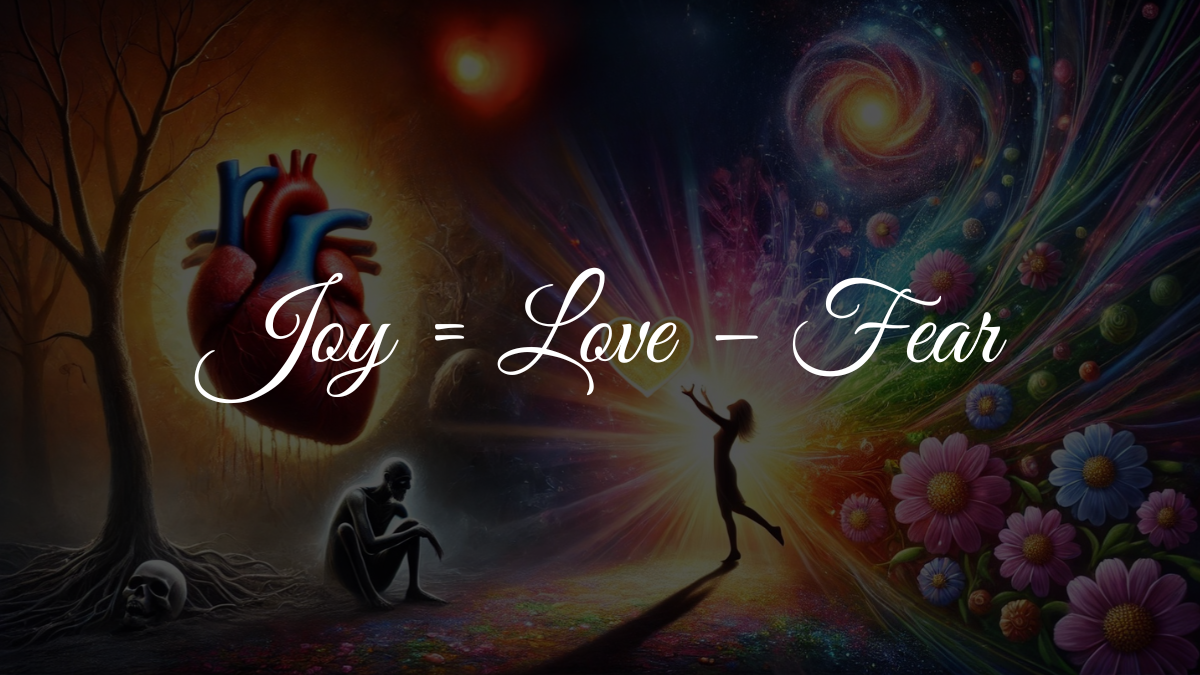
Fear is often ignored or suppressed, rather than faced.
Fear takes from the amount of love we can express.
It takes from the joy we can experience in life.
When we face our fears we reduce the value of fear and as a result our joy increases, our heart opens.
Identify specific fears and challenge them to create space for more love.
Meditation or exposure therapy can help.
Facing fear head on allows for greater emotional freedom and joy.
18. Thriving = Frequency of Positive ÷ Frequency of Negative
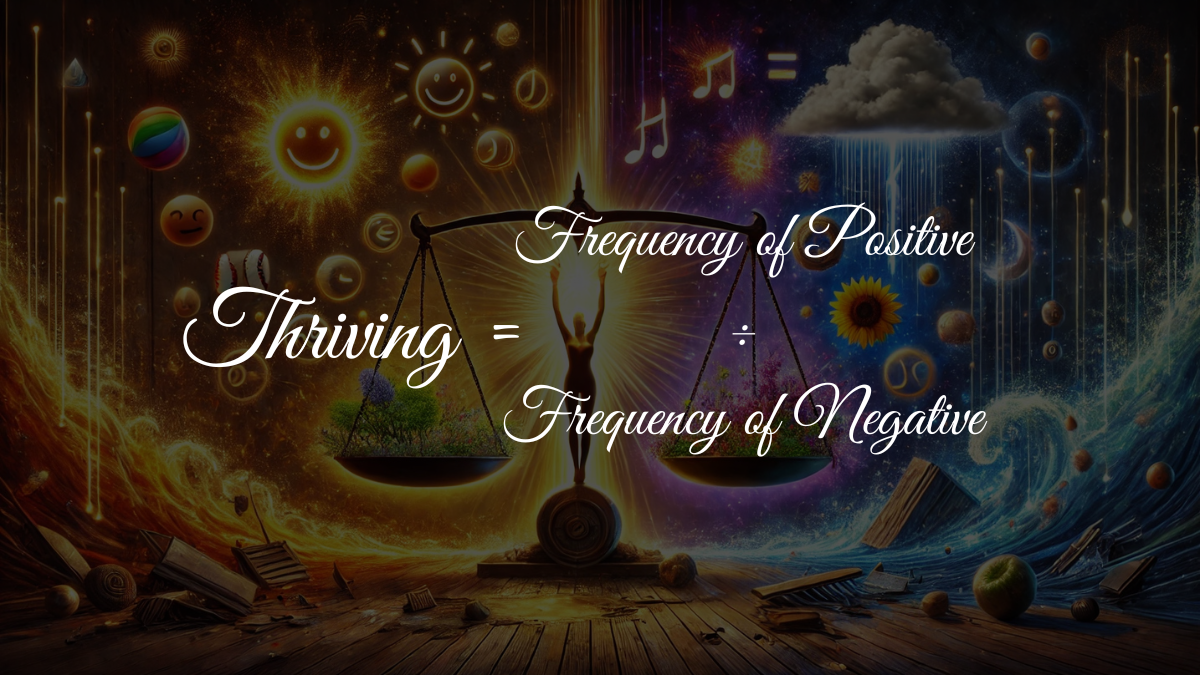
People chase positives but ignore reducing negatives.
However, we often forget the role of the negatives in thriving.
If there is 0 negative than the positive loses its meaning and there is also 0 thriving in our life.
Focus on eliminating small, recurring stressors (e.g., bad habits, toxic relationships) to create a larger net positive effect.
True thriving is about balance and intentional living.
19. Faith = Belief ÷ Intellect
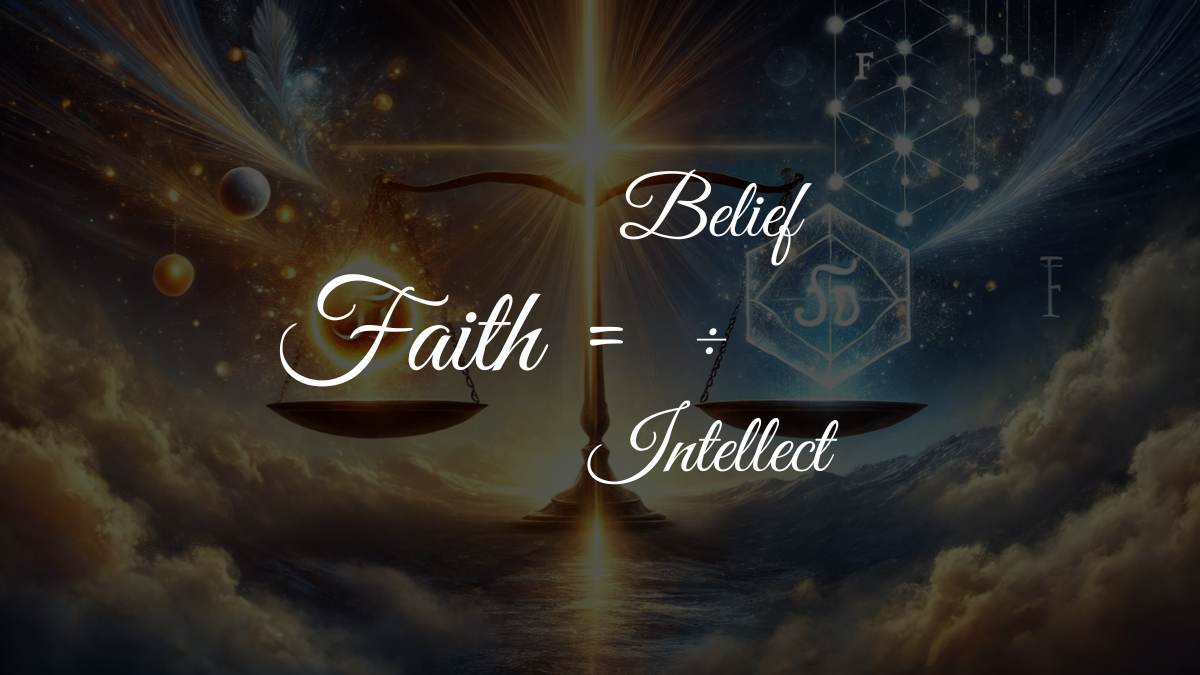
Intellect is often seen as opposing faith.
However, without at least a little intellect there is no faith.
If intellect is 0 faith is also 0 because the belief is not based on anything.
In order for a belief to work, it needs to be balanced with intellect.
True faith is not about knowing for a fact that what we believe in is true, but trusting that it is.
What many people forget however, is that we also need to have the intellect to reason why it can be true.
Otherwise, it’s just an abstract thought.
Balance faith and intellect by seeking knowledge that supports belief, such as studying spiritual or philosophical concepts.
Harmonizing logic with belief fosters a deeper sense of purpose.
20. Wisdom = √Experience
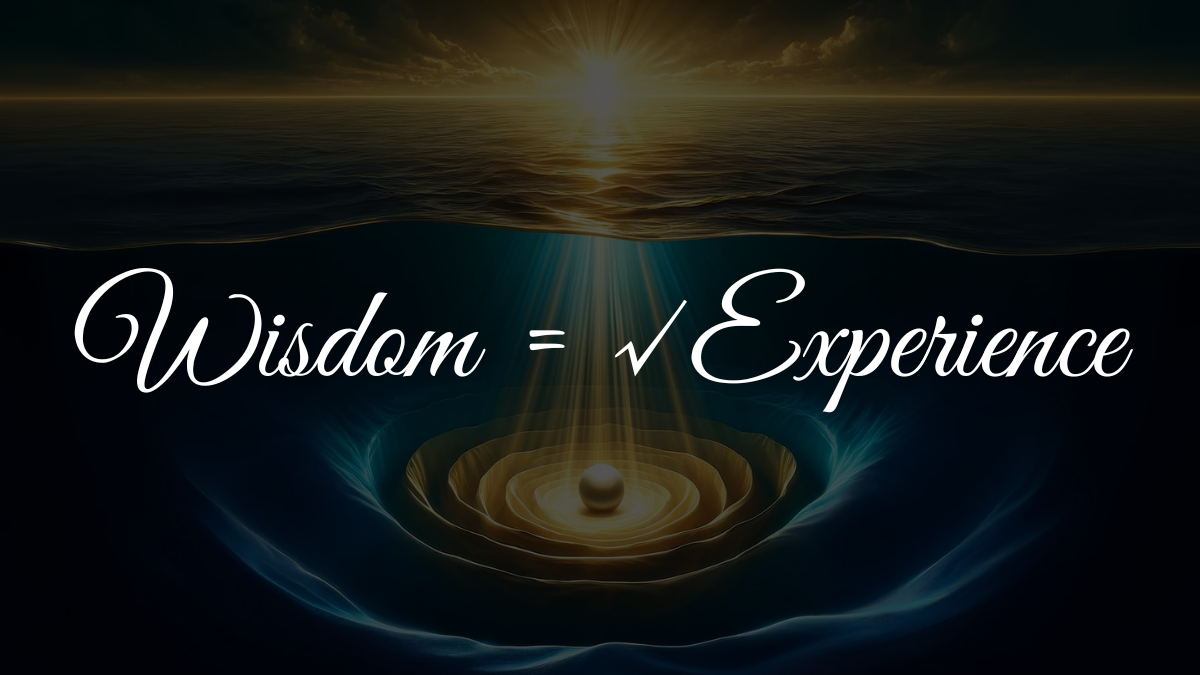
Depth of experience matters more than quantity.
Most people try to do as many things as possible thinking it will enrich their lives or bring wisdom.
But true wisdom is sourced from the depth of your experience.
You can focus on 1 thing your whole life (one interest, one skill, one book) and go as deep as possible…
You will have greater wisdom than people who tried 1000 things but just scratched the surface.
Slow down to reflect deeply on your experiences.
Extract lessons through journaling or discussions with mentors.
Reflection transforms experiences into wisdom.
By understanding these emotional equations and applying their insights, we can navigate life with more clarity, resilience, and fulfillment.
What is your favorite equation? Please share it in the comments below.






